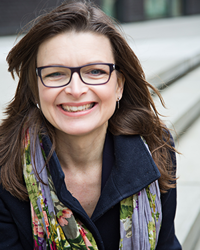Assessment of a new medicine handling concept
At the new OUH, there will be no medicine rooms in the clinical departments. Instead, a large proportion of medicines that are not ready for use must be delivered to the departments by Pharmaservice, a decentralised unit staffed by pharmacy-trained staff.
PROJECT PERIOD
Start: August 2023
End: November 2023
The goal was for the workflows to be generic, but it can be difficult to standardise, as the clinics' workflows and points of attention in relation to the patients' medication depend on i.e the specialty and the functions of the departments.
AIM
The purpose of the assessment was to examine the clinical departments' experiences with the new workflow and to examine potential differentiations in the departments' needs.
With the help of participant observation with nurses, midwives, doctors and pharmacologists as well as semi-structured interviews with the heads of the clinical departments, knowledge was generated about what the new division of labour with Pharmaservice meant for nurses, midwives, doctors and the heads of department in the Department of Geriatric Medicine and the Department of Gynaecology and Obstetrics respectively, including the D6 section and Pregnancy and Maternity at Gynaecology, and for pharmaconomists in Pharmaservice.
RESULTS
The departments involved praised Pharmaservice for their friendliness, good contact and willingness to make the division of labour fit as best as possible with the needs of the departments within the framework of the establishment of the new drug concept at OUH.
At the Department of Geriatric Medicine, the division of labour with Pharmaservice was seen as meaningful and a great relief. The nurses experienced saving a lot of time when they did not have to dispense medicine, especially since the department's patients are characterised by having many competing diseases that are treated with a lot of medicine.
Pregnancy and Maternity at the Department of Gynaecology and Obstetrics is an emergency department where medicine must be given evenly over 24 hours a day. The transition from Pharmaservice's opening hours to closing hours led during the assessment period to double dosing and the risk of unintended events. The dispensing formats in which the medicine was delivered meant a lack of overview for nurses and midwives and thus various concerns for patient safety. This was also the experience at the the Department of Gynaecology and Obstetrics, section D6. In a previous project in the Capital Region, it was also found that 24-hour dosing in an emergency department did not work appropriately, as there were many changes in medication throughout the day.
In the surgical section D6 at the Department of Gynaecology and Obstetrics, they were generally satisfied with the new workflow. However, they realised that the concept will only fit their operation completely when Pharmaservice is open 24 hours a day. The alternation between getting help from Pharmaservice and having to have the skills to carry out the tasks themselves during closing hours challenged the nurses. The nurses' functions did not only concern the dispensing of medicine, but also attention to compliance with the ward's procedures and to what the patients could tolerate, which Pharmaservice had no insight into.
The pharmacologists experienced a lack of continuity in their work in Pharmaservice. The majority of them described the work as monotonous and automated, which in the long term can lead to recruitment challenges. In addition, there was a great deal of coordination work between Pharmaservice and the clinical departments, as the pharmacologists' work does not, as a general rule, take place in the clinical section. This results in i.e. many phone calls, which for many were an interruption in their dispensing work.
PARTNERS
The project was carried out in collaboration with the Department of Geriatric Medicine, the Department of Gynaecology and Obstetrics and Pharmaservice at Odense University Hospital.

Kathrine Rayce
HTA Consultant, Postdoc
Odense University Hospital, Dept. of Clinical Development - Innovation, Research & HTA
(+45) 6541 7940 kathrine.rayce@rsyd.dk
